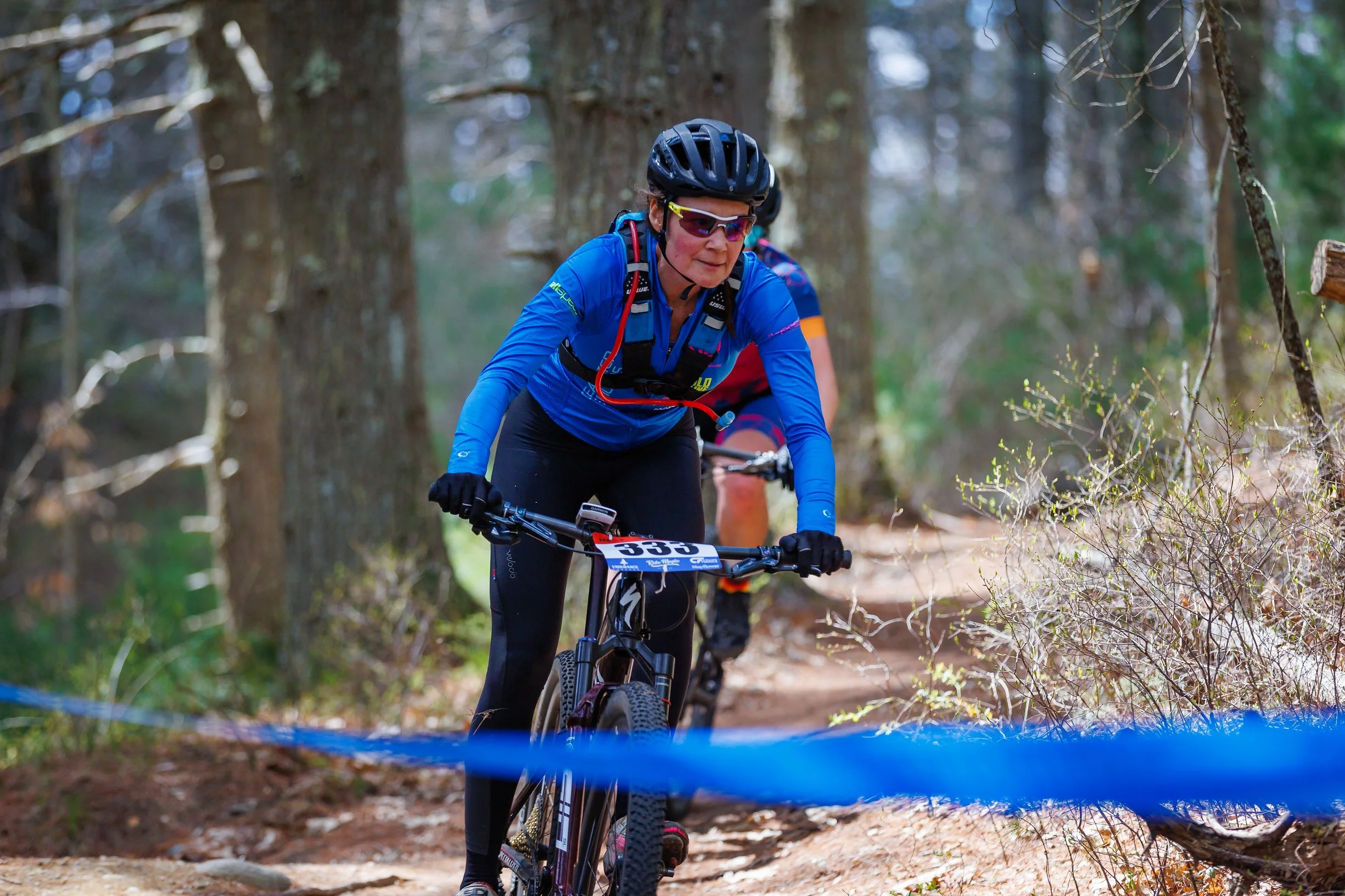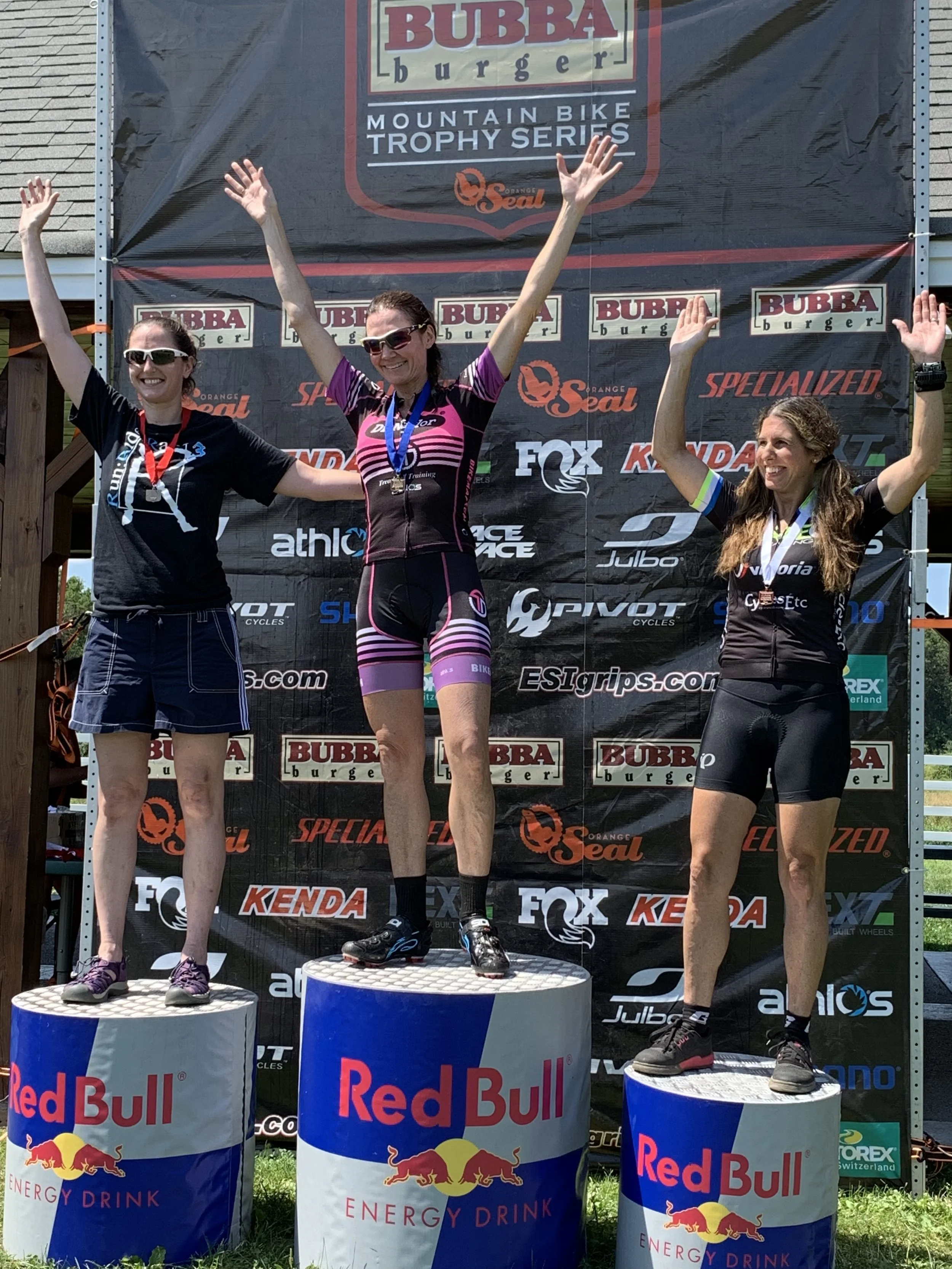DERECK TREADWELL
Dereck “Tread” Treadwell has over 17 years of full-time coaching experience. His experience ranges from college coaching at both NCAA Div I and Div III levels, Director of Mountain at Gould academy, and an Elite racing career that has spanned over two decades. He is above all, a student and teacher of the sport of cycling and running.
Tread graduated with a Bachelor of Science from the University Of Maine in 1998. At UMaine, he was a highly decorated student-athlete. He was a 2008 Inductee in the UMaine Athletics Hall of Fame. At UMaine, Tread was an NCAA Division I All-American, a holder of 8 school records, and a 1996 1500m Olympic Trials Finalist. A former Maine State 800m record holder, and Old Town High School Athletic Hall of Fame member, Tread also grew up racing and riding mountain bikes. Tread is a Cat 1 road cyclist and a UCI Elite MTB Racer. He was the 2019 NUE Marathon National Series runner-up, has several wins and podium finishes in top XC Marathon races, as well a two-time top finisher at Mt. Washington Newton’s Revenge Hill Climb. He also competed in triathlon and and raced as an Elite for several years. He continues to hold several run course records. Tread was a National Champion in Duathlon as well as represented the USA on three Elite Duathlon World Championship teams.
Empowerment through Holistic Training
Introduction: As a coach, my primary goal is to guide and empower athletes to achieve their highest potential in gravel mountain biking and road racing. I believe in a holistic approach that encompasses training principles, physiology, mental resilience, and personalized programming. By fostering a deep understanding of the sport and one's own body, athletes can excel both physically and mentally.
Training Principles:
Periodization: Structured training cycles will be implemented, including base, build, and peak phases, to optimize performance gains and recovery.
Specificity: Training programs will be tailored to the demands of gravel mountain biking and road racing, focusing on improving endurance, strength, speed, and technical skills.
Progressive Overload: Gradual and controlled increments in training intensity, duration, and complexity will be used to ensure consistent improvement without risking overtraining.
Variation: Cross-training activities will complement cycling to enhance overall fitness, prevent overuse injuries, and keep the training experience enjoyable.
Recovery and Adaptation: Ample recovery periods will be integrated to allow the body to adapt and grow stronger, reducing the risk of burnout and injury.
Physiology Understanding:
Aerobic Base: Develop and prioritize the aerobic system as the foundation for both endurance and recovery, enabling athletes to perform at higher intensities for longer durations.
Anaerobic Capacity: Intervals and high-intensity efforts will enhance anaerobic capacity, enabling quick bursts of speed, essential for surges and attacks in races.
Strength and Power: Incorporate strength training to improve muscular endurance, power output, and overall stability, crucial for navigating technical terrain.
Nutrition and Hydration: Educate athletes about proper fueling strategies before, during, and after training and races, to optimize energy levels and recovery.
Rest and Sleep: Emphasize the significance of quality sleep and rest in the recovery process, aiding in physical repair and mental rejuvenation.
Mental Resilience:
Goal Setting: Collaboratively set short-term and long-term goals to provide athletes with a sense of purpose and direction in their training journey.
Mindfulness: Introduce mindfulness techniques to enhance focus, reduce performance anxiety, and manage stress effectively.
Positive Self-talk: Encourage athletes to cultivate a positive inner dialogue, fostering self-confidence and motivation during challenging moments.
Adaptability: Teach athletes to embrace uncertainty and adapt to varying race conditions, promoting mental flexibility and resilience.
Individualized Programming:
Assessment: Conduct thorough assessments to understand each athlete's strengths, weaknesses, and physiological markers, forming the basis of personalized training plans.
Communication: Maintain open and regular communication with athletes to gather feedback, track progress, and make necessary adjustments to the training program.
Lifestyle Integration: Tailor training schedules to accommodate each athlete's lifestyle, ensuring a sustainable balance between training, work, and personal commitments.
Data Utilization: Utilize technology to track and analyze training data, allowing for data-driven adjustments and evidence-based decision-making.




